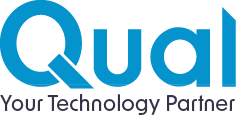Why is information technology important in healthcare?


Information technology is playing an increasingly important role in healthcare. From electronic health records (EHRs) to remote patient monitoring, IT is being used to improve the quality of care, increase patient safety, and reduce costs.
Some of the ways in which IT is important in healthcare are:
Here are some specific examples of how IT is being used in healthcare:
The future of IT in healthcare...The use of IT in healthcare is constantly evolving. As technology continues to advance, we can expect to see even more innovative ways to use IT to improve patient care, increase patient safety, and reduce costs.
Here are some trends to watch in the future of IT in healthcare:
IT is playing an increasingly important role in healthcare. It is helping to improve patient care, increase patient safety, and reduce costs. As technology continues to advance, we can expect to see even more innovative ways to use IT to improve the healthcare system.
Some of the ways in which IT is important in healthcare are:
- Improved patient care: IT can help to improve patient care in a number of ways. For example, EHRs can help to ensure that patients' medical records are accurate and up-to-date. This can help to prevent medical errors and ensure that patients receive the correct treatment. IT can also be used to provide patients with access to their own medical records, which can help them to better understand their health and make informed decisions about their care.
- Increased patient safety: IT can also help to increase patient safety. For example, computerized physician order entry (CPOE) systems can help to prevent medication errors by ensuring that doctors enter prescriptions correctly. IT can also be used to track patient vital signs and monitor for potential complications.
- Reduced costs: IT can also help to reduce costs in healthcare. For example, EHRs can help to streamline administrative tasks, such as billing and coding. This can free up staff time to focus on patient care. IT can also be used to provide remote patient monitoring, which can help to reduce the number of hospital admissions and readmissions.
Here are some specific examples of how IT is being used in healthcare:
- Electronic health records (EHRs): EHRs are digital versions of paper medical records. They store a patient's medical history, including their diagnoses, medications, allergies, and test results. EHRs can be accessed by all of a patient's healthcare providers, which can help to ensure that they have access to the most up-to-date information.
- Computerised physician order entry (CPOE) systems: CPOE systems allow doctors to enter prescriptions electronically. This can help to prevent medication errors by ensuring that prescriptions are entered correctly.
- Remote patient monitoring: Remote patient monitoring uses technology to track a patient's vital signs and other health data from a distance. This can help to identify potential problems early on and prevent complications.
- Virtual reality (VR): VR is being used in healthcare to train surgeons, provide pain relief, and help patients with rehabilitation.
The future of IT in healthcare...The use of IT in healthcare is constantly evolving. As technology continues to advance, we can expect to see even more innovative ways to use IT to improve patient care, increase patient safety, and reduce costs.
Here are some trends to watch in the future of IT in healthcare:
- The rise of big data: Big data is the collection and analysis of large amounts of data. In healthcare, big data can be used to identify trends, improve clinical decision-making, and develop new treatments.
- The growth of artificial intelligence (AI): AI is a rapidly developing field that has the potential to revolutionize healthcare. AI can be used to develop new diagnostic tools, automate tasks, and provide personalized care.
- The increasing use of mobile technology: Mobile technology is becoming increasingly popular in healthcare. Patients can use mobile devices to access their medical records, communicate with their healthcare providers, and track their health data.
IT is playing an increasingly important role in healthcare. It is helping to improve patient care, increase patient safety, and reduce costs. As technology continues to advance, we can expect to see even more innovative ways to use IT to improve the healthcare system.
